From Conclave: JVC Shares Anti-Money Laundering Program Tips
Plus, jeweler Melissa Quick of Steve Quick Jeweler details what it was like to go through an AML audit.

From scouring supplier lists to trade-in exceptions, JVC’s Tiffany Stevens and Sara Yood delved into the details.
And Melissa Quick of Steve Quick Jeweler in Chicago shared her personal experience of being audited as a cautionary tale for other jewelers.
Here are a few important things to keep in mind, per the presentation.
Know the law and if it applies to your business.
Money laundering is the process of making ill-gotten gains appear legal and any jeweler is liable to get tangled in its web.
Anti-money laundering (AML) laws were first enacted in the United States by the Bank Secrecy Act of 1970 and were later expanded to include jewelers by the USA Patriot Act of 2001.
The regulations apply to jewelers who purchase and sell $50,000 or more in “covered goods,” which refer to goods made of precious metal, precious gems, and jewels and jewelry that derive at least 50 percent of their value from those precious materials.
However, retailers who only buy from sellers who are compliant with U.S. anti-money laundering laws do not need to have an AML program in place.
If a retailer buys from a foreign supplier, estate sales, auction houses, government-sponsored sales, or from the public (not including trade-ins), then an AML program should be put in place.
(Regarding trade-ins, AML rules apply if a trade-in leads to a payment to the customer and retailers should ask to see an ID.)
Jewelers should name a compliance officer to take charge of the AML program.
This person needs to be an employee of the company who is knowledgeable about the business, capable of documenting actions related to the program, and has the authority to make decisions on behalf of the company.
Also, be sure all employees are aware of the program and trained on how it works.
If a business is not compliant, following investigations and legal proceedings, regulators could impose two different types of penalties, according to Jewelers of America.
A retailer could face a civil penalty with a fine up to $250,000 or up to two times the amount of the transaction (not to exceed $1 million), or a criminal penalty with a fine up to $500,000 and a maximum of 10 years in prison, or both.
Check on suppliers regularly.
It’s important for jewelers to perform a risk assessment, paying particular attention to suppliers.
The Office of Foreign Assets Control, a division of the U.S. Treasury, publishes a list of individuals and companies owned or controlled by countries U.S. citizens are not permitted to do business with by law.
It also lists individuals, groups and entities, like terrorists and drug traffickers, that are not country-specific. They are called “specially designated nationals” (SDNs) and U.S. citizens must avoid doing business with them as well.
Jewelers can also check the list of sanctions programs and the Financial Action Task Force’s list of non-cooperative countries.
JVC advises retailers to go through their supplier list and spot check regularly to see if any show up on these lists. Customers can be checked as well.
If there appears to be a match, verify before burning that bridge.
Jewelers should keep an Excel file or list to document when the list has been cross-checked.
If an auditor comes knocking, well-kept records could fend them off, or at least buy some time, said Yood.
Be wary of red flags.
Many jewelers have long-standing, trustworthy relationships with their suppliers and customers, but if something feels off, examine the situation.
For example, if a supplier suddenly wants a jeweler to send payment somewhere other than the usual place, that’s a red flag, said Yood.
When jewelers encounter a red flag, they should speak with the supplier or customer and ask a few clarifying questions.
Make a risk assessment and consult with the AML compliance officer, then decide whether or not to proceed with the transaction and document the decision.
Stop accepting cash payments.
Cash transactions come with their own baggage.
Transactions over $10,000 paid in cash have to be reported to the IRS via a form 8300. Whether it’s one transaction or a related series of transactions, that form needs to be filled out.
A retailer will need a customer’s tax ID and address to fill out that form, so be sure to collect that.
A foolproof way to avoid the problems attached to cash payments is to stop accepting them, said Yood.
“If someone really wants to buy something, they will figure out a way to pay you that is not cash,” she said.
While getting rid of paper money, ditch the paper invoices too, said Yood, noting digital ones are easier to sort through and manage.
Stress test the program.
Those looking to create a program have a few options.
Jewelers can hire an attorney to draft one, purchase JewelPAC, an automated software program from JVC and Jewelers Mutual, or buy JVC’s hard copy AML kit.
Once a program in place, be sure that it works. JVC recommends annual testing by a third-party auditor.
The stress test should include a full review of the AML program and documents as well as a review of three months of transactions.
Ledger entries should be matched to invoices and then to payments to suppliers or from customers.
Yood recommends holding onto all documents for seven years, as per the usual legal standard.
A word from the wise
Melissa Quick shared her experience of being audited with the session attendees, recounting a harrowing tale of nonstop paperwork and hefty legal fees.
The IRS contacted her seemingly out of the blue, showing up just ahead of the holiday season, an inopportune time for any retailer. Thankfully, her lawyer was able to negotiate a postponement until after the holidays.
The auditor dragged Quick along on a 9-month long journey that cost her $25,000 in legal fees.
“I didn’t do anything wrong, but it was a great expense to prove I didn’t do anything wrong,” said Quick.
Time and money aside, the experience was a drain on her mental health.
Quick reached out to JVC for guidance on how she and her lawyer should navigate the auditing process.
Looking to avoid this ordeal again in the future, Quick heeded Yood’s advice and stopped taking cash payments entirely, concluding she’d rather pay the 2.5 percent credit card processing fee and avoid another five-figure legal bill.
She also no longer works with international vendors to lower her risk level.
Quick said she doesn’t know any other jewelers who have gone through this process, though Yood was aware of a few in the Midwest and on the West Coast.
The likelihood of an audit is low, said Yood, but it’s always good to be prepared.
The Latest
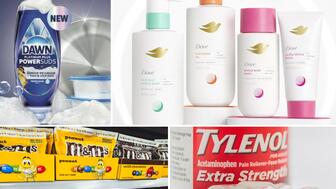
From tech platforms to candy companies, here’s how some of the highest-ranking brands earned their spot on the list.
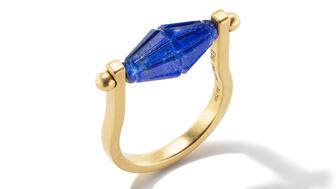
The “Khol” ring, our Piece of the Week, transforms the traditional Indian Khol drum into playful jewelry through hand-carved lapis.

The catalog includes more than 100 styles of stock, pre-printed, and custom tags and labels, as well as bar code technology products.

Launched in 2023, the program will help the passing of knowledge between generations and alleviate the shortage of bench jewelers.

The chocolatier is bringing back its chocolate-inspired locket, offering sets of two to celebrate “perfect pairs.”


The top lot of the year was a 1930s Cartier tiara owned by Nancy, Viscountess Astor, which sold for $1.2 million in London last summer.

Any gemstones on Stuller.com that were sourced by an AGTA vendor member will now bear the association’s logo.

Criminals are using cell jammers to disable alarms, but new technology like JamAlert™ can stop them.

The Swiss watchmaker has brought its latest immersive boutique to Atlanta, a city it described as “an epicenter of music and storytelling.”

The new addition will feature finished jewelry created using “consciously sourced” gemstones.

In his new column, Smith advises playing to your successor's strengths and resisting the urge to become a backseat driver.

The index fell to its lowest level since May 2014 amid concerns about the present and the future.

The new store in Aspen, Colorado, takes inspiration from a stately library for its intimate yet elevated interior design.
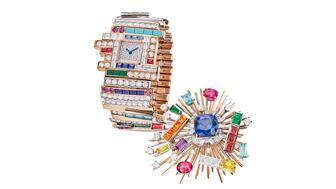
The brands’ high jewelry collections performed especially well last year despite a challenging environment.

The collection marks the first time GemFair’s artisanal diamonds will be brought directly to consumers.

The initial charts are for blue, teal, and green material, each grouped into three charts categorized as good, fine, and extra fine.
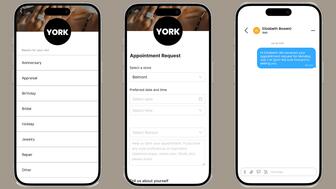
The new tool can assign the appropriate associate based on the client or appointment type and automate personalized text message follow-ups.
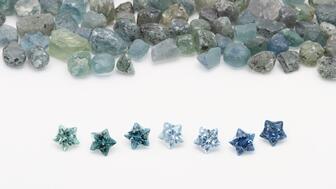
Buyers are expected to gravitate toward gemstones that have a little something special, just like last year.

Endiama and Sodiam will contribute money to the marketing of natural diamonds as new members of the Natural Diamond Council.

The retailer operates more than 450 boutiques across 45 states, according to its website.

The new members’ skills span communications, business development, advocacy, and industry leadership.

The jeweler’s 2026 Valentine’s Day campaign, “Celebrating Love Stories Since 1837,” includes a short firm starring actress Adria Arjona.
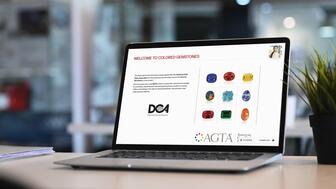
The new features include interactive flashcards and scenario-based roleplay with AI tools.

Family-owned jewelry and watch retailer Deutsch & Deutsch has stores in El Paso, Laredo, McAllen, and Victoria.

The Italian luxury company purchased the nearly 200-year-old Swiss watch brand from Richemont.
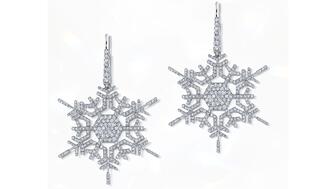
Micro-set with hundreds of diamonds, these snowflake earrings recreate “winter’s most elegant silhouette,” and are our Piece of the Week.

Ella Blum was appointed to the newly created role.





























